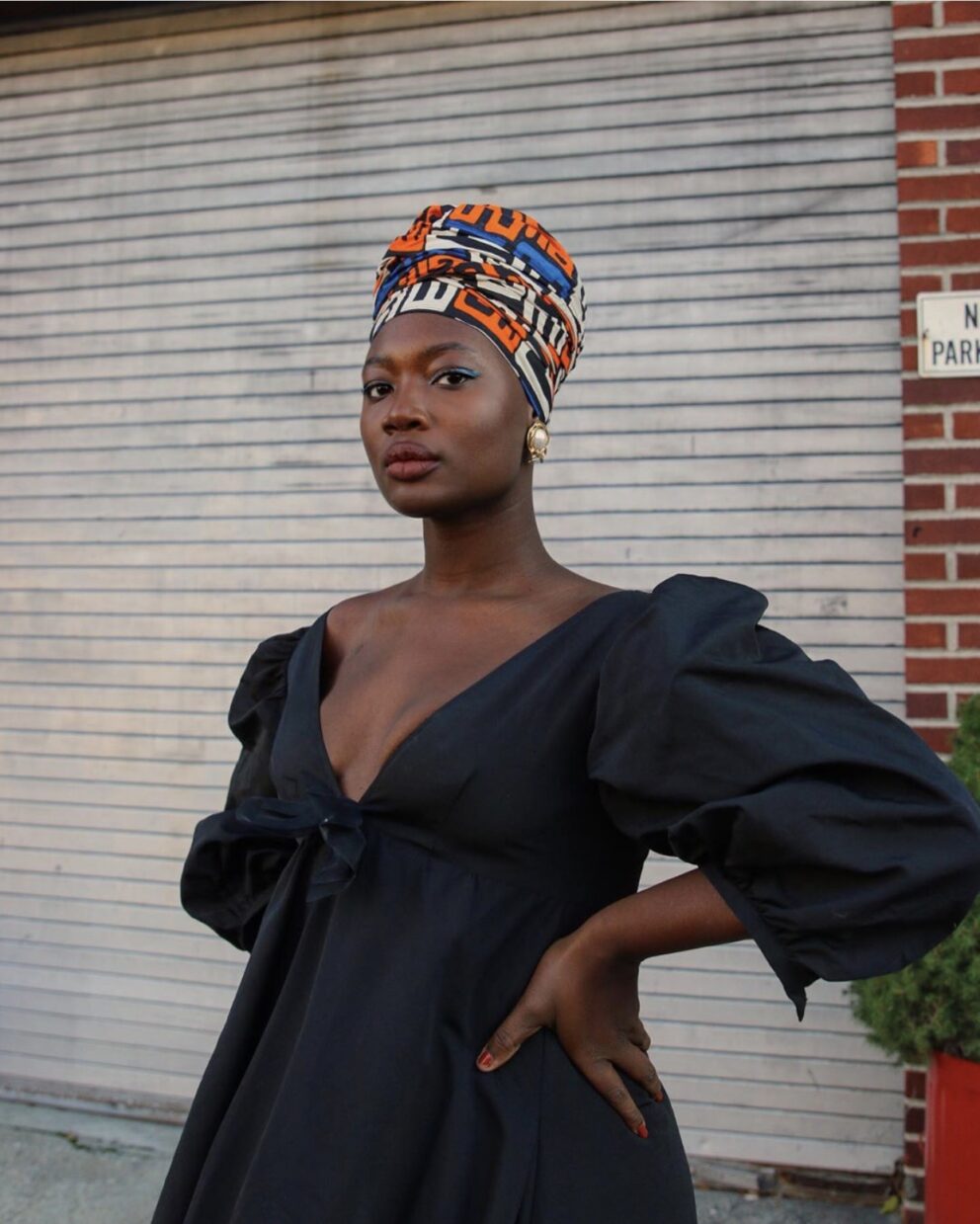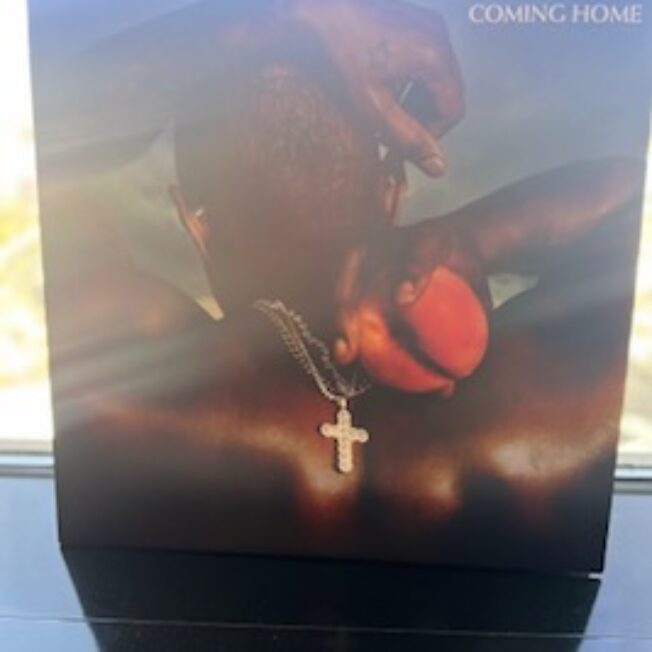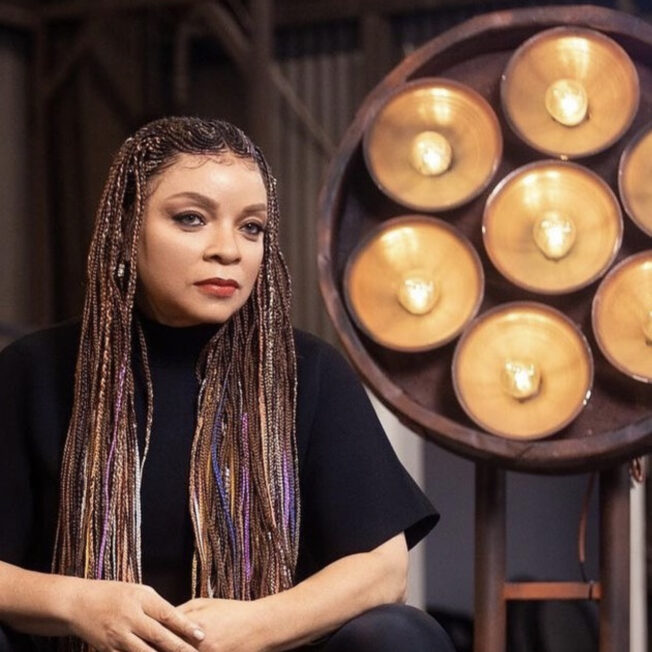Michaela Coel truly does it all. Coel, born Michaela Ewuraba Boakye-Collinson, is an actress, writer, director, and producer. Oh, and she sings too. The 32-year-old British multi-hyphenate has created and starred in two of her own shows, made appearances in Netflix originals like “Black Mirror” and “Been So Long,” and had her college play “Chewing Gum Dreams” picked up by multiple theaters when she was only 24.
And that’s only the tip of the iceberg for the award winning actress. Coel was named one of TIME’s most influential people of the year, and as Lena Waithe described in her testimonial, she was put on earth to make her art.
Who is Michaela Coel?
Coel was born and raised in East London to Ghanian parents. After a brief stint at the University of Birmingham to study English Literature and Theology, she transferred to the Guildhall School of Music and Drama as the first black woman enrolled at the school in five years.
During her time at Guildhall, Coel developed a one-woman play based on a short poem for her graduation project as a senior, then titled “Chewing Gum Dreams” about a 14-year-old girl named Tracey. Throughout the show, the actress took on the role of 11 different characters in vignettes where humor-meets-drama. Eventually, Coel’s play was produced by Bush Theatre and Royal Theatre Holland in 2012, the Royal Exchange Theatre in 2013, and the National Theatre in 2014.
A couple of years later, what was her senior project for graduation turned into a smash hit as an award-winning Netflix show that propelled Michaela Coel into stardom.
Chewing Gum
“Chewing Gum Dreams” was developed into a full series shortened to “Chewing Gum,” debuting in October of 2015. Rather than following a 14-year-old, the fourth-wall busting comedy revolved around a 24-year-old Tracey Gordon played by Coel herself, a shop assistant who is very religious in her everyday life, obsessed with Beyoncé, and wants to explore and learn more about her own sexuality.
Before the show, Coel had never written a television script before and had no previous television experience, even revealing to Terry Gross on NPR that she learned after she “Googled how to write a series” and kept trying until she got it right.
The series ran for two seasons, earning Coel two BAFTA’s: one for best female comedian, the other for breakthrough talent. Originally debuting on the network E4 in the UK, Coel’s first show eventually was brought to Netflix in the United States at the end of October 2016 to give the show some international attention.
Despite the show being a success, Coel was denied the role and credit as an executive producer on both seasons and admitted in 2018 to consistently fighting for creative ownership of her own body of work, leaving her frustrated behind the scenes of the project.
In her next venture, Coel created, wrote, produced, co-directed, and starred in the series “I May Destroy You,” initially launched on BBC One in the UK before coming to HBO in the United States for global success. The actress turned down a $1 million deal from Netflix in 2017 for the show despite her global success being attributed to the streaming giant because they would not allow her to retain any percentage of the copyright, similar to her situation during “Chewing Gum.” The same year, she pitched the show to the BBC and was offered a seat at the table, including full creative control and rights to her work.
I May Destroy You
While “Chewing Gum” was a success in many senses of the word, the experience didn’t bring all positives to Coel’s life. Coel was in the middle of writing the second season of the show when she took a break from work to go out for drinks with a friend. At the bar, her drink was spiked. That evening, Coel was sexually assaulted by two men, only returning to consciousness at the office of her production company. Her phone was smashed when she came to, but she finished the episode despite still being in her drug-induced state. Coel was able to piece together the assault over the next day.
“I May Destroy You” fictionalized Coel’s very real experience from that day, taking the audience through the moment as well as the intense and often confusing trauma that follows. In the series, Coel plays Arabella, an author in the middle of writing her second book. Throughout the 12-episode series, Arabella works through remembering the night from the pilot episode, processing her trauma, and stumbling along the way to reaching closure on the night that continuously replays in her head.
Coel dedicated two and a half years to writing “I May Destroy You,” choosing not to work on anything else to focus on a piece of work so close to her as well as to many others.
“It’s been quite hard but cathartic because I’m reflecting on a dark time rather than feeling it is happening to me right now,” she told BBC.
The series shows just how differently everyone responds to trauma, whether it’s denial or desperation for someone to listen and believe you. “I May Destroy You” explores themes of processing trauma through different avenues and showcasing different faces of assault through unexepected characters and complicated situations.
“I May Destroy You” is layered with complexity, forcing viewers to look introspectively without telling them what to think or believe. The name in and of itself is more than meets the eye, an enigma that can mean so many things. In the title screen of the show, the “you” from the title is eventually erased, inspiring multiple interpretations.
“I may destroy you. I may destroy myself. I may be completely thoughtless and just destroy any and everything around me,” Coel explained in a video for British GQ. Who is saying, ‘I may destroy’? Is it Arabella? Is it the man that sexually assaulted her in episode one? Who may destroy?”
From open-mic nights to award winning television shows, Coel has made space for herself within the industry, using her words and vision to paint vivid pictures, tell her own story and the truth of many others, and have full control of her own narrative, whatever it takes.
“Michaela makes work that forces the audience to grapple with themselves while also taking herself to task,” Waithe wrote for TIME, comparing the actress to the likes of Nina Simone. “Usually, with Black women protagonists, everyone’s mission is to make you like or root for them. But Michaela shows us that sometimes we can be our own worst enemy. She reminds me that the only person who can destroy me is myself. She’s showing us a piece of ourselves that is rarely captured onscreen.”
Resources
www.providers.therapyforblackgirls.com
Photographer Credit: Amy Troost Photography





















